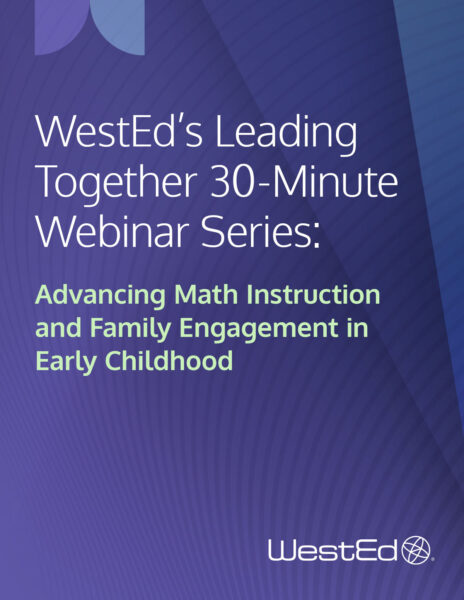In this Leading Together webinar session recording, learn about the Program for Infant/Toddler Care (PITC) approach—an approach that places responsive caregiving at the heart of building strong relationships with infants and toddlers and their families.
At the heart of PITC is a deep commitment to care practices for infants and toddlers that respects the varied cultures, practices, preferences, strengths, approaches to learning, and needs of the children and families served.
This 30-minute webinar, presented by the PITC team, explores responsive, relationship-based strategies that help create predictable emotionally connected care. These strategies support the well-being, learning, and development of infants and toddlers.
Session Topics
- What it means to engage in responsive and respectful relationships with infants and toddlers and their families
- How responsiveness and predictability can create a sense of security for infants and toddlers
- The impact of responsive relationships on learning and development for infants and toddlers
Webinar Moderators
- Arlene Paxton, Director, Infant and Toddler Care
- Elizabeth Crocker, Director, PITC Training and Certification
Featured Speakers

Peter Mangione, Senior Director, Early Childhood Strategic Initiatives
Mangione is Senior Director of Early Childhood Strategic Initiatives at WestEd and directs the Program for Infant/Toddler Care (PITC), a national model for early childhood professional development. He has led the creation of early learning and development standards and curriculum, infant, toddler, and preschool program guidelines, resources for supporting young dual language learners, and early childhood educator competencies.

Amber Morabito, PITC Curriculum Manager, Infant Toddler Care
Morabito has deep content knowledge in infant/toddler development and care, has expertise in infant/toddler program implementation, is an experienced and skilled trainer and coach, has an understanding of early childhood quality improvement efforts, and possesses strong interpersonal and intrapersonal skills and abilities that support the expansion of the PITC Curriculum at local, state, and national levels.
About PITC
At the PITC, we consider a relationship-based approach to caring for infants and toddlers essential. PITC believes responsive, respectful care in a relationship is key for supporting early learning, rather than developing lessons for infants to master. Adults who implement the PITC approach find ways to allow for, expand, adapt, and encourage infants’ efforts to pursue their inborn learning agenda.
To support implementation of PITC, we provide professional development and resources to the early childhood education community. Visit pitc.org to learn more.










